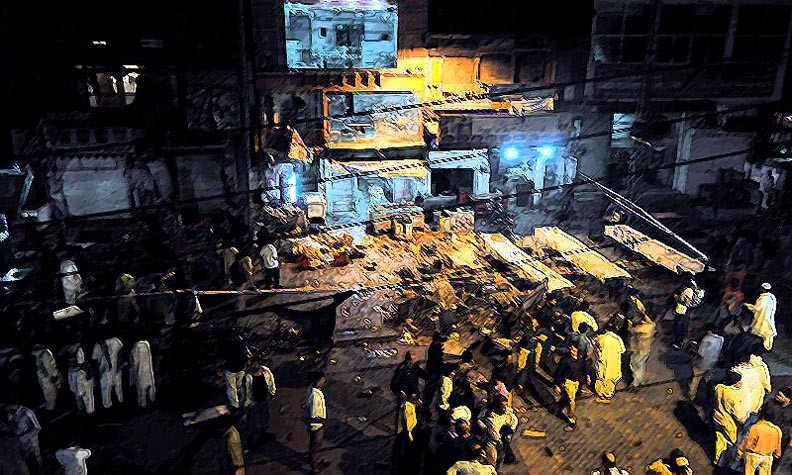
Fayetteville looked like the best place I could have imagined myself to be at. But Lahore is, and shall always be, home

I often think of Lahore these days. Though, when I came to the US, I had a sigh of relief. A very green, quiet university town, Fayetteville looked like the best place I could have imagined myself to be at. But having lived here for a year now, and having been to many other mega cities like New York and Austin, in the US, and Mexico City across the border, I think of Lahore, and Pakistan, my home country, a lot more these days.
I clearly remember my first impressions of Fayetteville. It was well before midnight when a cab picked me up from the airport. It was a 45-minute drive from the airport to Fayetteville. My heart sank when I found nothing but quietness and green woods sunk in semi-darkness all along the way.
Used to Lahore’s bustling city, it was quite an unexpected site for me. But once here, and given a warm welcome by a fellow Fulbrighter, an Afghan, and his two friends, the early impression subsided soon enough.
The next morning, when I opened my eyes to Fayetteville, I felt so relieved. The place had the infrastructure of Islamabad (which a foreigner friend of mine once told me didn’t look a part of Pakistan!), and the greenery and freshness of Khanus Pur, a tourist area near Murree. I considered myself lucky that I was going to be living here for at least five years -- the length of my PhD degree.
Two things about the place struck me the most for quite some time: freedom and a sense of security. I did not have to bother much about my looks or what I would talk about. It was as if I had been set free, from the ‘cage’ of censorship.
More so, it was like escaping the (invisible) iron bars around my being. The sense of fear that was always in the air in Lahore was gone for now. I remembered how the moment I’d step out of my house, the fear would strike me, till the cows came home. Incidents such as the bomb explosions in Anarkali, my second home during my university days, and at Data Darbar, and also the terrorist threats my newspaper office had, were quite the order of the day. I was always thinking about the safety of my family and friends as well as myself.
With time, though, I had become insensitive to the deaths of the unknown. Call it a survival instinct, if you will.
In the US, gradually, the grip of fear went away, as newer things revealed themselves to me. I felt secure and free here but not exactly a part of the colours and sounds, signs and symbols, scattered here and there. Back home, I was used to being pampered by my friends and family, given royal treatment as they understood I was going abroad for higher studies. Here, the way I spoke (English), the way I looked and where I had come from, besides other personal limitations, put me on a different pedestal.
It is not a ‘lower’ status, as many Pakistanis would consider. It is, in fact, a subtle ‘other-ness.’ Imagine a person from a rural background attending a wedding ceremony in a posh area in Lahore! He speaks Punjabi and is attired in a simple, non-designer outfit. Howsoever hard he may try to make himself feel at home, he cannot -- not in the eyes of those around him.
Here, the flashy shopping malls, the fancy packaging of food items etc, aren’t the kind of things I was used to seeing. I can see the beauty of trees but I can’t name them, I can cherish ‘their’ food occasionally but it does not satiate my taste buds.
I feel kind of ‘elevated’ speaking English but it does not have the comfort and the deep emotional link I felt with the Urdu and Punjabi notes. I might be getting nostalgic, or suffering from the eternal desire to look away from where you are, but it is in times like these that I think of this place and Lahore, my beloved city, and Pakistan, my home country.